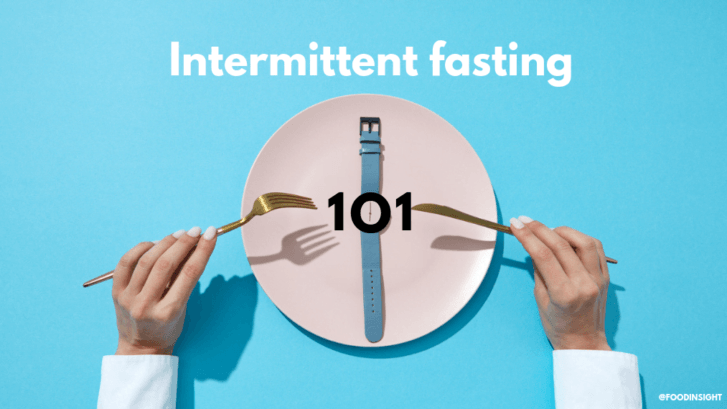Study Finds Another Possible Benefit from Intermittent Fasting
Diet fads come and go, especially on today’s social media. Our primary care concierge doctors in Jupiter cringe whenever a new weight loss gimmick surfaces, because nearly all of them are unsupported by science, and—while they may achieve temporary weight loss—are nutritionally unsound.
One atypical approach to eating that seems to be generally accepted in the medical literature is the technique of intermittent fasting (IF). This is an eating pattern that includes hours or days of no or minimal food consumption without deprivation of essential nutrients.
The first approach, known as 16:8, is the most popular, which involves fasting for 16 hours a day and consuming all your meals within an eight-hour period.
Other popular types of Intermittent Fasting involve either fasting on alternate days, or 5:2 fasting, which involves eating normally five days a week and fasting for two non-consecutive days a week, consuming 500-600 calories on fasting days.
Benefits of Intermittent Fasting
Evidence from decades of animal and human research suggests wide-ranging health benefits from IF, according to a 2020 review of the research published in the New England Journal of Medicine (NEJM).
Researchers found that “eating in a six-hour period and fasting for 18 hours can trigger a metabolic switch from glucose-based to ketone-based energy, with increased stress resistance, increased longevity, and a decreased incidence of diseases, including cancer and obesity.”
And researchers at Johns Hopkins Medicine also found numerous health benefits that result from Intermittent Fasting:
-improved working memory and verbal memory
-improved blood pressure and resting heart rates, as well as other heart-related measurements
-reduced tissue damage during and after surgery
-loss of fat while maintaining muscle mass
In addition, the Mayo Clinic reports: “Some research suggests that intermittent fasting may be more beneficial than other diets for reducing inflammation and improving conditions associated with inflammation, such as Alzheimer’s disease, arthritis, asthma, multiple sclerosis, [and] stroke.”
And the American Heart Association recently reported in its journal Heart that “[r]egular fasting is associated with lower rates of heart failure and a longer life span, according to two new studies.”
Latest Finding
Finally, a new study published this month in the Endocrine Society’s Journal of Clinical Endocrinology & Metabolism showed that after an IF diet intervention, patients achieved complete diabetes remission, defined as an HbA1c (average blood sugar) level of less than 6.5 percent at least one year after stopping diabetes medication.
In this small study of 36 participants, researchers at Hunan Agricultural University in Changsha, China, placed participants who had type 2 diabetes from one year to 11 years on the more restrictive IF plan of five fasting days followed by 10 days of reintroducing everyday food items such as wheat, barley, rice, rye, and oats. Subjects ranged between 38 and 72 years of age and were using anti-diabetic drugs and/or insulin injections.
Known as the Chinese Medical Nutrition Therapy (CMNT) diet, the approach resulted in 47.2 percent of participants achieving diabetes remission, compared with 2.8 percent in the control group.
The study showed that “type 2 diabetes is not necessarily a permanent, lifelong disease,” Dongbo Liu, the study’s corresponding author and a professor at the University, said in a news release.
Dr. Robert Gabbay, chief scientific and medical officer for the American Diabetes Association (ADA), told UPI he found the study’s findings encouraging.
“This study, though small, adds to the emerging literature on the potential benefits of intermittent fasting for the diabetes community,” he told the news organization.
Some Caution Warranted
If you plan to follow an IF diet, we strongly suggest that you check with us first, because this type of eating plan isn’t for everyone.
For example, one small 2020 study published in the journal JAMA Internal Medicine found that those following the 16:8 IF diet over 12 weeks lost little weight but most of what they did lose was “lean mass” which includes muscle tissue, possibly because they were consuming less protein.
And Harvard Health Publishing notes several other potential side effects from IF:
- Depending on the length of the fasting period, you may experience headaches, lethargy, crankiness, or constipation.
- It may cause you to overeat “because your appetite hormones and hunger center in your brain go into overdrive when you are deprived of food.”
- It may be dangerous if you’re taking certain medications, including anti-diabetes drugs and medications for blood pressure or heart disease.
How to Intermittent Fast Safely
Registered dietitian Kathy McManus, director of the Department of Nutrition at Harvard-affiliated Brigham and Women’s Hospital, recommends easing into an IF plan to help your body adjust more easily.
“Slowly reduce the time window for eating, over a period of several months,” she advises.
She recommends you should also:
Continue your medication regimen as recommended by your doctor.
Stay hydrated with calorie-free beverages, such as water and black coffee.
Choose a modified fasting plan approved by your doctor if you need to take the medication with food.
Also, if you’re thinking, “If some fasting is good, more will be even better,” don’t. Longer periods without food can encourage your body to store more fat because it slips into starvation mode.
Finally, eating normally during the off-fast portion of the day or week doesn’t mean binging on junk food. Whether fasting or not, your body needs healthy, nutritious food to maintain health and a normal weight.

